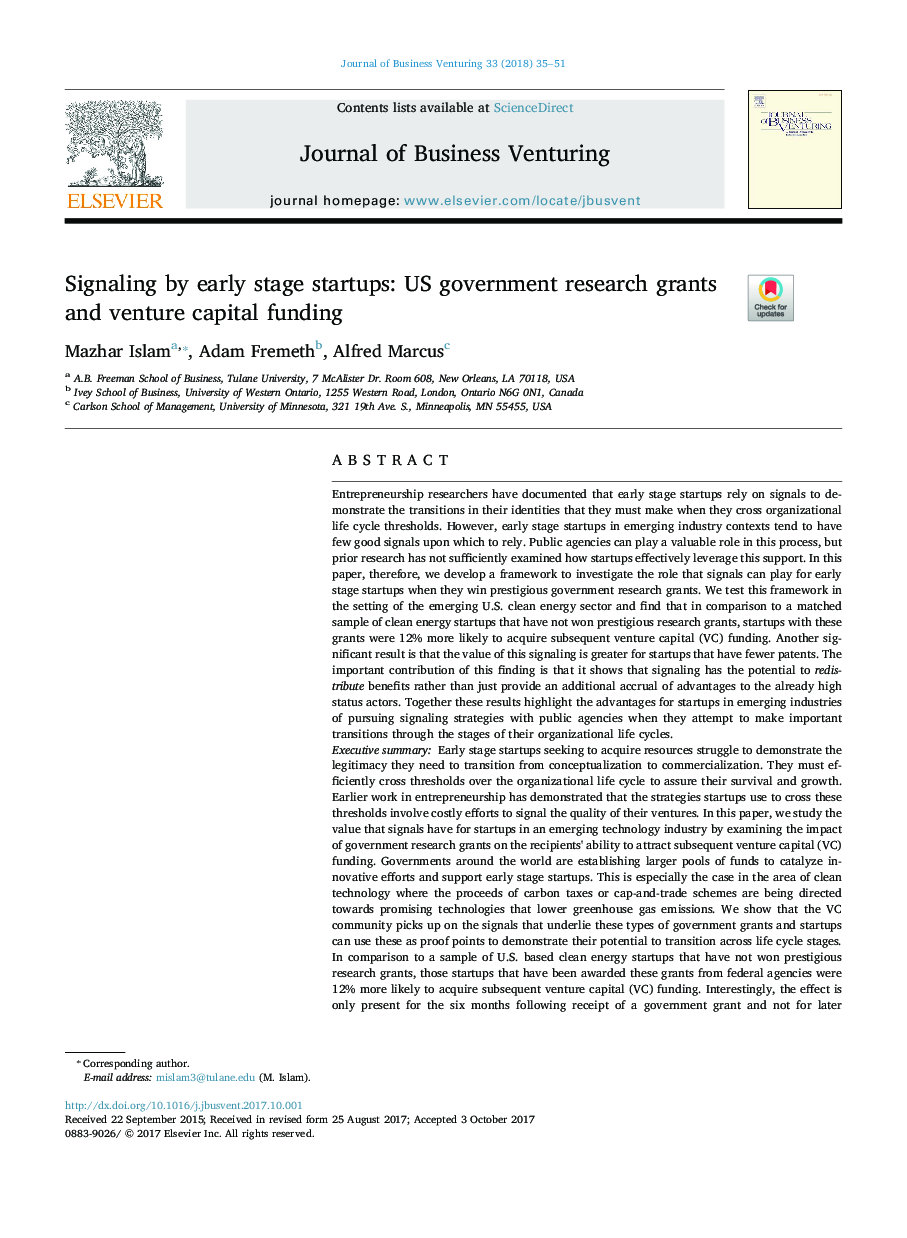| Article ID | Journal | Published Year | Pages | File Type |
|---|---|---|---|---|
| 7425804 | Journal of Business Venturing | 2018 | 17 Pages |
Abstract
Our study makes several contributions. First, we identify a strategy that early stage startups adopt as they struggle to transit their identity from the conception to commercialization stages. We show how signals that startups establish through government research grants can distinguish them from non-grant recipient startups in a way that allows them to overcome information asymmetries and catalyze their efforts to establish ties with VCs. We further argue that for an early stage startup these grants have value beyond the monetary award if they can be used as an identity transforming event to avoid languishing in the well documented valley of death. Second, our focus on an emerging technology sector context shines light on how identity transitions differ based upon gradations in industry development. In this type of industry, the threshold external resource providers confront is more opaque and therefore it is greater than it is in mature industries, leading to wider identity transition gaps. Third, the dynamic aspect of the signaling strategy that we study about the early stage startups contributes to our understanding of when such firms extract value from signals. Finally, our findings offer interesting implications for policymakers responsible for designing research grant programs. We demonstrate that government grants have positive impacts on startups obtaining VC financing. Given the signaling value of grants, policymakers may consider involving VCs in the design of these programs.
Related Topics
Social Sciences and Humanities
Business, Management and Accounting
Business and International Management
Authors
Mazhar Islam, Adam Fremeth, Alfred Marcus,
